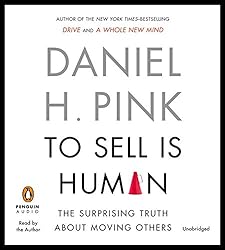 Ir's pretty simple... consider the opinions, ideas and thoughts of others to be more valuable than your own and you will find it necessary to listen more carefully and consider their world view.
Ir's pretty simple... consider the opinions, ideas and thoughts of others to be more valuable than your own and you will find it necessary to listen more carefully and consider their world view.
Easier said than done. In fact, I know geniuses. Literally... they are amazing with the depth of knowledge and expertise and I am humbled to be connected. Their genius is actually a curse as it seems to become more difficult for perspective taking when one knows the answers.
Perspective taking is a key leadership skill but entrepreneurs on-the-go get lost with so many hats to wear.
Perspective-taking is the process by which an individual views a situation from another's point-of-view." - fresh off Wikipedia
An SLP (Speech Language Pathologist) said: "Yes Mike. This is referred to as Theory of Mind". For those of you in a different world of education and speech therapy, here is a reference:

Along the way we have those with wisdom reminding the rest of us about how to have better relationships, get more cooperation, have more success and even sell more.
St. Francis of Assisi’s famous “Prayer of St. Francis” says the following:

Stephen Covey many years later wrote "The 7 Habits of Highly Effective People" which seems to borrow habit five: "seek first to understand, and then be understood" from St. Francis but doesn't make it any less helpful. Perspective taking leads to understanding.

Even with the wisdom of others and the obviousness of not being right all the time, resistance to new ideas rules. Seth Godin will tell you its your "lizard brain" which keeps you in fear mode... even when there is nothing threatening.
Want a few examples of how perspectives can conflict and confuse?





Perspective-Taking vs. Empathy
It is important to understand that perspective-taking is exclusively the process of taking an alternate point-of-view.
For example, one can perspective-take a fellow individual’s thoughts and feelings. However, the perspective-taking process does not necessarily lead to feelings of empathy. Rather, that determination may be made after the perspective-taking process has concluded.
To demonstrate this point, Davis cites 18th century Scottish philosopher Adam Smith and 19th century British anthropologist and sociologist Herbert Spencer. Both Smith and Spencer wrote about perspective-taking as a "cognitive, intellectual reaction" and empathy as a "visceral, emotional reaction".
Because this differentiation is commonly overlooked, perspective-taking is frequently confused with empathy. For this reason, the use of perspective-taking and empathy as synonyms is frequent within the scientific literature.
You can have empathy but be lousy at perspective taking. There is a perspective taking self-assessment here. If you find your perspective taking skills are lacking, you may find people are argumentive, uncooperative, won't buy from you and in fact you may wonder why you don't have any friends.
Why this matters
Daniel Pink, the author of "To Sell is Human" shares his view:
"The ability to take another perspective has become one of the keys to both sales and non-sales selling."
And the social science research on perspective-taking yields some important lessons for all of us.
First, reducing your power can sharpen your perspective. When you’re in an encounter, assume you’re the one without power — because the research shows an inverse relationship between power and accurate perspective taking.
Second, don’t confuse perspective-taking with empathy. Both are important. But perspective-taking is very much a cognitive skill. You do it better by thinking about another person’s interests, not only understanding what emotions they’re feeling.
Third, you can enhance perspective-taking through subtle mimicry. Human beings are natural mimickers. The more you’re conscious of the other side’s posture, mannerisms, and word choices — and the more you subtly reflect those back — the more accurate you’ll be at taking their perspective."
Daniel Pink shares more. It is well worth setting aside time to watch:
In fact, Joseph Fuerst says: "Forget empathy" during negotiation. "Empathy begins where perspective-taking ends; the point of departure is emotion. Once you connect with a prospect’s role and challenges on an emotional level, you risk losing sight of your own objectives and will likely fail to sell, especially in the complex sale." Read more
At some point it time today you will make a case, attempt to move people from one opinion to another, influence someone to invest time and energy which will benefit them. You may move them to say "sign here", "join now", "attend the event". If you have not taken time to understand their point of view, you will not serve them well.
The foundation of "Don't just sell. First, make their day!" is based on perspective taking. It is almost impossible to make someone's day without first understanding.
Whether you are a genius or not, perspective taking will help you improve as a leader, selling and relationships. It will change your life.
Listen to the book... It is now on my top five recommended list:
